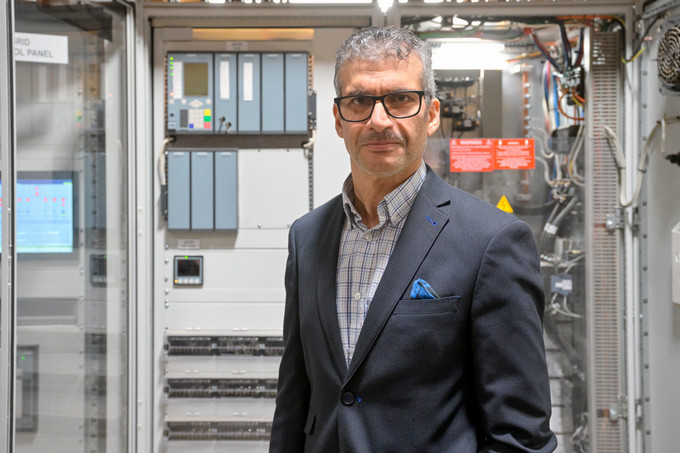Electronic Systems Engineering
What is Electronic Systems Engineering?
The Electronic Systems Engineering faculty at the University of Regina are actively involved in innovative and interdisciplinary research that addresses real-world challenges in modern electronics, communications, and intelligent systems. Their work spans theoretical developments, practical applications, and system-level integration across various domains in engineering.

Key research areas include:
- Internet of Things (IoT) and wireless sensor networks
- Cybersecurity and cloud-edge computing
- Signal and image processing
- Machine learning and artificial intelligence
- Computer vision
- Micro-Grid
- Microwave device and system design
- Mobile agent systems and autonomous computing
- Biomedical signal processing
- Non-destructive testing and fiber optic sensing
- Wireless communications, including 5G and future networks
- Advanced algorithm development for signal processing and data analysis
Areas of Study:
- Automation & Control
Programmable Logic Controllers & industrial control systems
System response theory - Communications
Network architecture & security
Digital signal processing - Microelectronics
Integrated circuit design
Semiconductors - Power Systems
Generators, transformers, motors
Electrical relay protection
Undergraduate and Graduate Programs

Microgrid Living Lab
Powering a cleaner future.
Led by Dr. Irfan Al-Anbagi, a first-of-its-kind project at the University of Regina is now up and running—and it could change how we power our communities.

Service Excellence
The Sovereign’s Medal for Volunteers recognizes the exceptional volunteer achievements of Canadians from across the country in a wide range of fields and pays tribute to the dedication and commitment of volunteers.
Lisa Vindevoghel has dedicated herself to volunteering with multiple organizations, such as the Leukemia and Lymphoma Society of Canada the Saskatchewan Cancer Agency, the Canadian Cancer Society, and Ducks Unlimited.
Lisa Vindevoghel has dedicated herself to volunteering with multiple organizations, such as the Leukemia and Lymphoma Society of Canada the Saskatchewan Cancer Agency, the Canadian Cancer Society, and Ducks Unlimited.
Careers for ESE Graduates
What sort of career could you have?
Electronic Systems Engineers typically work in the following areas or hold the following job titles:
- Avionics
- Communications
- Computer Design
- Electronic Systems Engineer
- Engineering Management
- Hardware Systems Engineer
- Instrumentation
- Manufacturing & Processing
- Programming
- Power Electronics
- Quality Assurance
- Radio & Television
- Telecommunications
- Test Engineer